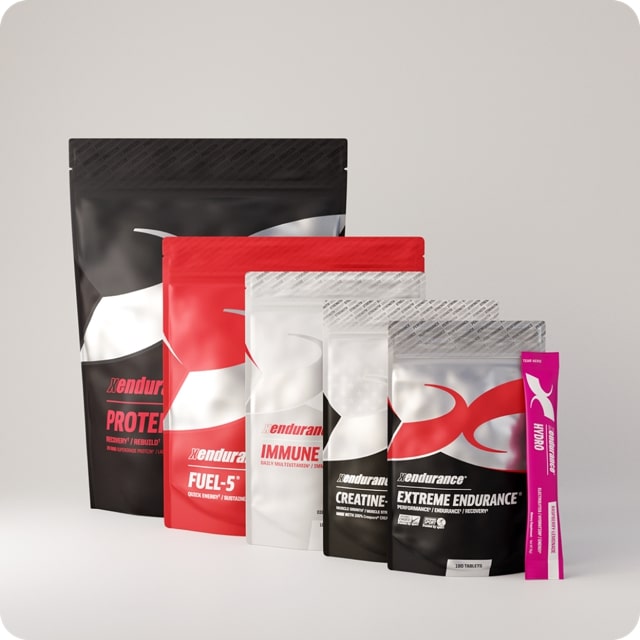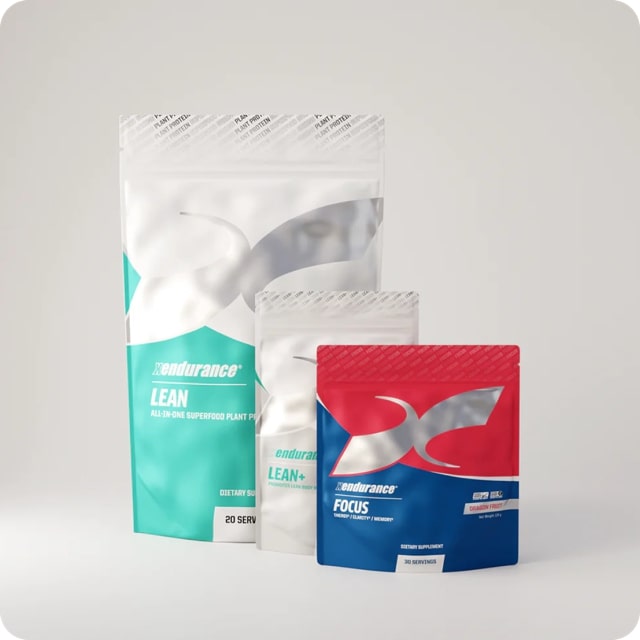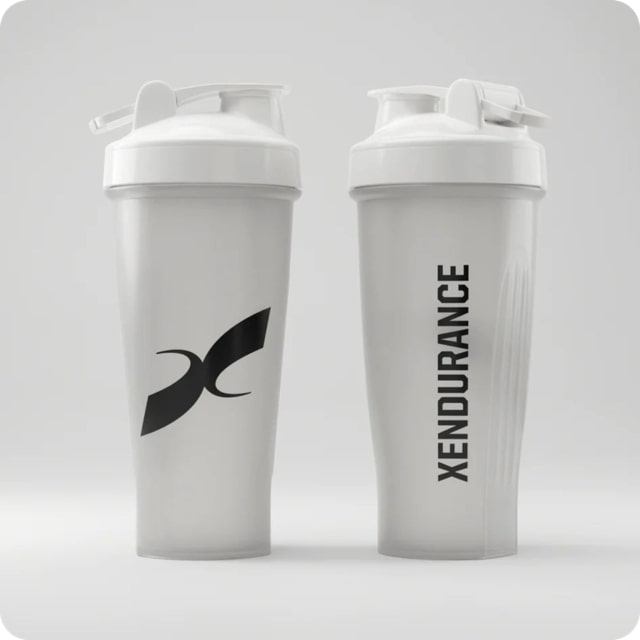Digestive issues can be a real obstacle, especially if you're trying to incorporate more protein into your diet for muscle growth, recovery, or general health. If you've ever experienced bloating, gas, or stomach discomfort after consuming a protein shake, you're not alone. For many, the solution might lie in a specialized form of protein powder for digestive issues: Whey Protein Hydrolysate. Let's delve into why this might be your saving grace.
Understanding the Problem: Why Some Proteins Cause Digestive Distress
- Lactose Sensitivity: Many protein powders, especially those derived from dairy, contain lactose. If you're among the substantial percentage of the global population with lactose intolerance, even a small amount can lead to digestive discomfort.
- Protein Concentration: Concentrated protein sources, like whey protein concentrate, can sometimes be tough for the body to digest, leading to feelings of heaviness or bloating.
- Additives and Fillers:Some protein powders have added sugars, artificial sweeteners, thickeners, and other ingredients that can be problematic for sensitive stomachs.
- The Hydrolysate Solution
Hydrolysate protein, often just referred to as hydrolysate, goes through a unique processing method that might make it a game-changer for those with sensitive stomachs.
- Pre-Digested Form: The term "hydrolysate" might sound technical, but it's essentially describing a "pre-digested" protein. Hydrolysate undergoes partial hydrolysis, breaking down protein molecules into smaller fragments, making them easier for the body to absorb and utilize, aiding digestive health.
- Rapid Absorption: Because of its smaller peptide chains, hydrolysate is absorbed more swiftly, preventing the lingering of protein in the stomach that might cause discomfort.
- Reduced Lactose and Allergens:The processing that creates WPH often reduces its lactose content, making it a friendlier option for those with lactose sensitivity. Plus, the hydrolysis process can decrease allergenic properties, which can be a boon for those with mild protein sensitivities.
-

Tips for Making the Switch to Hydrolysate
- Start Small: If you're transitioning to hydrolysate, start with a smaller serving size to see how your body reacts. Gradually increase as you gauge your tolerance.
- Read Labels: Ensure the product you choose is genuinely a hydrolysate and check for any additional ingredients that might upset your stomach.
- Taste and Texture: Hydrolysate can sometimes have a slightly different taste or texture than other protein forms. You might need to experiment with different brands or mix it with other ingredients to find your perfect shake.
- Consult a Nutritionist: If you're unsure about the best protein source for you, consulting with a nutritionist or healthcare provider can offer personalized guidance.
Digestive issues shouldn't be a barrier to achieving your health and fitness goals. If traditional protein powders have left you feeling less than stellar, hydrolysate might be the gentle, effective solution you've been searching for. As with all nutritional choices, listen to your body, experiment responsibly, and prioritize your well-being. Consider incorporating enzymes for digestion to further support your digestive health.
Whey Protein Hydrolysate (WPH) vs. Whey Protein Isolate (WPI): Cost, Bioavailability, and Benefits
Whey protein, a derivative of milk during cheese production, is one of the most sought-after protein supplements. While there are various forms of whey protein, Hydrolysate (WPH) and protein isolate (WPI) often stand out for fitness enthusiasts and athletes. Let's delve into the comparison of these two prominent protein types across three critical areas: cost, bioavailability, and benefits.
1. Cost:
- Whey Protein Hydrolysate (WPH)
- Costlier: Generally speaking, WPH is more expensive than WPI. The reason for the higher price tag can be attributed to the additional processing it undergoes to break the protein down into smaller peptides.
- Specialized Product: Since WPH caters to a specific market segment (those looking for rapid absorption and those with sensitivity issues), its specialized nature might also drive the cost up.
- Whey Protein Isolate (WPI)
- Moderately Priced: While WPI is pricier than Whey Protein Concentrate (WPC) due to its higher protein content and purity, it's typically less expensive than WPH.
- Widespread Availability: As a popular choice among general fitness enthusiasts, economies of scale might make WPI somewhat more affordable than WPH.
2. Bioavailability:
- Whey Protein Hydrolysate (WPH)
- Rapid Absorption: The "pre-digested" nature of WPH allows it to be absorbed quickly, making it immediately available for muscle repair and growth.
- Higher Bioavailability: Due to its rapid absorption, WPH might have a slight edge in bioavailability compared to WPI.
- Whey Protein Isolate (WPI)
- High Bioavailability: WPI is known for its excellent bioavailability. The body can efficiently use a significant portion of the ingested protein.
- Quick Absorption: While its absorption is fast, it's not as rapid as WPH due to the larger peptide chains.
3. Benefits:
- Whey Protein Hydrolysate (WPH)
- Hypoallergenic: Hydrolysis reduces the allergenic properties, making WPH suitable for those with specific protein sensitivities or mild allergies.
- Reduced Risk of Digestive Discomfort: The "pre-digested" state might make it easier for some individuals to digest, leading to fewer issues like bloating or gas.
- Optimal for Post-Workout: Its rapid absorption can be beneficial immediately after a workout when the muscles are primed for recovery.
- Whey Protein Isolate (WPI)
- Purity: WPI contains a minimum of 90% protein by weight, making it one of the purest forms of protein available. This high concentration ensures minimal fats and carbohydrates.
- Low Lactose: The process of creating WPI removes most of the lactose, making it a suitable choice for those with lactose sensitivities.
- Versatile Usage: Due to its balanced absorption rate, WPI can be used both post-workout and at other times throughout the day.
Both WPH and WPI offer unique advantages. Your choice between the two should factor in your budget, specific health needs, and fitness goals. While WPH might be ideal for those seeking the fastest absorption or those with digestive sensitivities, WPI provides a high-quality, more affordable option for general protein supplementation. As always, consult with a nutritionist or healthcare provider for personalized recommendations.
What is the Cheapest Form of Whey Protein?
The cheapest form of whey protein is typically Whey Protein Concentrate (WPC). Here's a breakdown:
- Whey Protein Concentrate (WPC):
- Composition: WPC is the least processed form of whey protein and can have a protein content ranging from about 30% to 80%, depending on the specific product. The remaining composition includes fats, carbohydrates, and lactose.
- Cost: Due to its minimal processing compared to other forms of whey protein, WPC is generally the most affordable option.
- Usage: It's a popular choice among casual fitness enthusiasts and those who are just starting with protein supplementation.
- Texture and Flavor: WPC tends to have a creamier texture and more robust dairy flavor compared to its more refined counterparts.
In summary, while Whey Protein Concentrate (WPC) is usually the cheapest form of whey protein, it's essential to consider individual needs, dietary restrictions, and goals when choosing a protein supplement. If budget is a primary concern, WPC is an excellent place to start, but it's always crucial to check the specific protein content and other ingredients on the product label - and consider your stomach’s reaction to Concentrate.
Does Whey Protein Concentrate Upset Your Stomach?
For some individuals, Whey Protein Concentrate (WPC) may indeed be more likely to cause stomach discomfort compared to Whey Protein Hydrolysate (WPH) and Whey Protein Isolate (WPI). Here's why:
- Lactose Content:
- WPC: Contains more lactose than both WPH and WPI. Lactose is the sugar found in milk, and a significant portion of the global population has some degree of lactose intolerance. Consuming lactose can cause symptoms like bloating, gas, diarrhea, and stomach cramps for these individuals.
- WPI: While it still contains some lactose, the content is lower than in WPC because of the additional processing it undergoes to remove fats and carbohydrates.
- WPH: Generally has a lower lactose content, similar to WPI, but its "pre-digested" nature also makes it more comfortable for many to digest.
- Digestibility:
- WPC: Larger protein molecules in WPC can sometimes be harder for the body to break down, especially for those with sensitive stomachs.
- WPI: Contains more pure protein, which can be easier for some to digest compared to WPC, but still may cause issues for those with sensitive stomachs.
- WPH: The hydrolysis process breaks the protein down into smaller peptide chains, essentially making it "pre-digested." This can make it easier for the body to handle and can reduce the likelihood of digestive discomfort.
- Potential Allergens:
- WPC: Contains more of the components of whole whey, which might increase the likelihood of an allergic reaction for those sensitive to certain whey components.
- WPI: The further refinement reduces many potential allergens, but some individuals might still experience sensitivities.
- WPH: The process of hydrolysis can reduce the allergenic properties, making WPH a potentially better choice for those with mild protein allergies or sensitivities.
- Additives and Fillers:
- While the type of whey protein is essential, the additional ingredients in protein powders (like artificial sweeteners, thickeners, or flavorings) can also contribute to digestive discomfort. Always check the ingredient list if you're experiencing issues.
In summary, if you are experiencing gastrointestinal discomfort post-protein supplementation, you are not alone, particularly among active individuals and athletes seeking enhanced muscle repair, development, or overall well-being. The utilization of Whey Protein Hydrolysate may offer a targeted remedy to mitigate such digestive problems like bloating and gaseousness. Everyone's digestive system, however, is unique. It's essential to listen to your body. If one form of protein causes discomfort, it might be worth trying another type, such as WPH.










Leave a comment
This site is protected by hCaptcha and the hCaptcha Privacy Policy and Terms of Service apply.